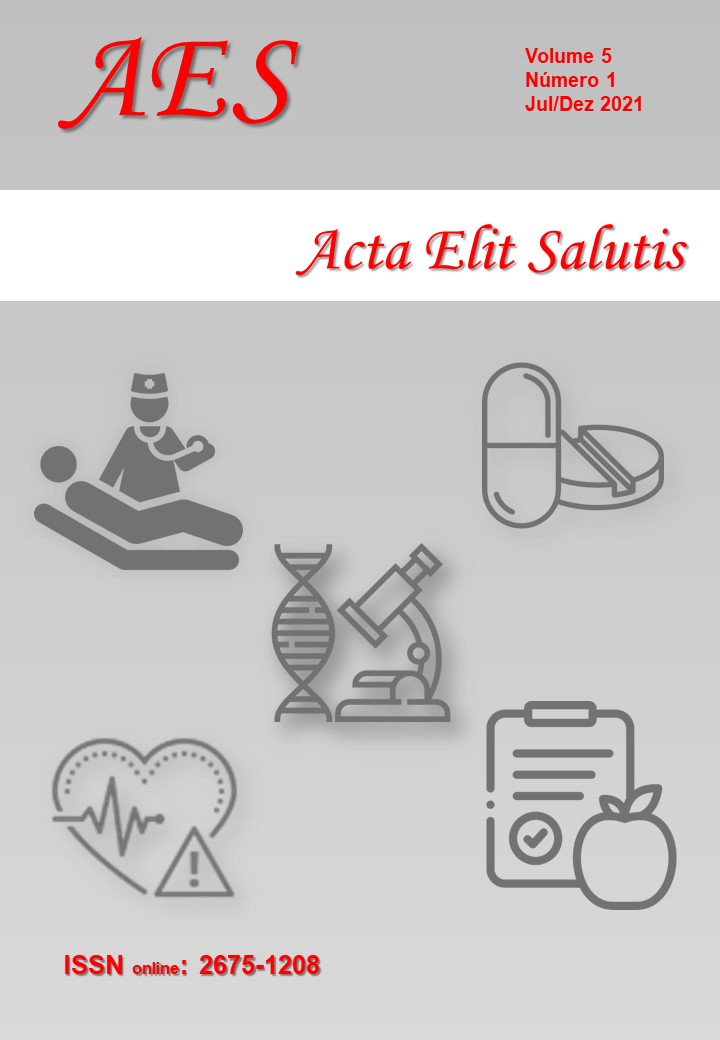Ginkgo Biloba: aplicações da planta para distúrbios de memória
DOI:
https://doi.org/10.48075/aes.v5i1.28555Palabras clave:
Ginkgo biloba, Planta, MemóriaResumen
O artigo tem como objetivo apresentar uma análise sobre a planta Ginkgo biloba, que vem sendo utilizado para distúrbios na memória. Realizou-se uma revisão de literatura por meio de materiais publicados nas bases de dados SciELO, LILACS e MEDLINE. Foram selecionados e sintetizados em uma tabela oito trabalhos que tiveram a utilização da Ginkgo biloba relacionada com memória, envelhecimento e doença de alzheimer. Constatou-se que, nesse fitoterápico, são atribuídas aos flavonóides as ações antioxidantes e anti-radicais livres, assim atuando no aumento do fluxo sanguíneo, protegendo contra os danos causados pela hipóxia, inibindo a agregação plaquetária. Dessa forma, observa-se nesse trabalho que a Ginkgo biloba é muito utilizada em todo o mundo, principalmente pelos indivíduos que querem retardar os efeitos do envelhecimento, pois devido a sua aplicação em uma série de doenças, particularmente com distúrbios de memória, sua função é preventiva e/ou curativa, gerando informações que serão evidenciadas, deixando clara a confirmação de sua eficácia por tradição de uso.
Descargas
Publicado
Cómo citar
Número
Sección
Licencia
Derechos de autor 2021 Acta Elit Salutis

Esta obra está bajo una licencia internacional Creative Commons Atribución-NoComercial-CompartirIgual 4.0.
Aviso de Direito Autoral Creative Commons
Política para Periódicos de Acesso Livre
Autores que publicam nesta revista concordam com os seguintes termos:
1. Autores mantém os direitos autorais e concedem à revista o direito de primeira publicação, com o trabalho simultaneamente licenciado sob a Licença Creative Commons Attribution que permite o compartilhamento do trabalho com reconhecimento da autoria e publicação inicial nesta revista.2. Autores têm autorização para assumir contratos adicionais separadamente, para distribuição não-exclusiva da versão do trabalho publicada nesta revista (ex.: publicar em repositório institucional ou como capítulo de livro), com reconhecimento de autoria e publicação inicial nesta revista.
3. Autores têm permissão e são estimulados a publicar e distribuir seu trabalho online (ex.: em repositórios institucionais ou na sua página pessoal) a qualquer ponto antes ou durante o processo editorial, já que isso pode gerar alterações produtivas, bem como aumentar o impacto e a citação do trabalho publicado (Veja O Efeito do Acesso Livre).
Licença Creative Commons
Esta obra está licenciada com uma Licença Creative Commons Atribuição-NãoComercial-CompartilhaIgual 4.0 Internacional, o que permite compartilhar, copiar, distribuir, exibir, reproduzir, a totalidade ou partes desde que não tenha objetivo comercial e sejam citados os autores e a fonte.





